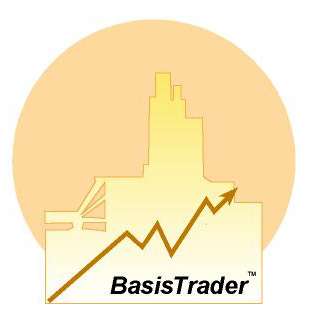Basis trading – the key to successful grain merchandising!
Andrew M. Mckenzie, Associate professor
Steven Nichols, Research associate
James Smartt, Research associate
Department of Agricultural Economics
The University of Arkansas, Fayetteville
(The Basis Trader software was developed at the University of Arkansas Division of Agriculture and is the copyrighted property of the university. Decompiling and reuse of the source code is strictly prohibited.)
The overall objectives of this project are to (1) highlight the educational importance of the concepts of grain merchandising, hedging and basis trading, and to (2) provide instructors with the necessary tools to teach these concepts to undergraduate agricultural economics and agribusiness students. To accomplish these goals interactive links are included on this web page, which provide (a) a general overview of grain merchandising, hedging and basis trading, (b) access to a downloadable version of “Basis Trader” software game, and (c) a tutorial of how to play the game. It is hoped that these materials will become valuable teaching aids in the areas of commodity price risk management and marketing.
The current environment of increasing globalization in agricultural markets has led to higher price volatility and greater usage of risk management tools. However, there is a lack of undergraduate agribusiness course materials on basis trading and risk management education at the merchandising level of the grain industry, where most agricultural risk management activities occur and where many employment opportunities for students are found. Existing risk management course materials focus exclusively at the farm level. We seek to meet this need by making available a basis trading software game, developed at the University of Arkansas, to teach merchandising and price risk management skills to undergraduate agribusiness students. “Basis Trader” is an engaging risk-management game using computer technology to provide an experiential learning experience that develops students’ analytical decision making skills at an applied level. Risk management and basis trading skills are applicable to any markets where both derivatives and underlying cash instruments trade side by side, and they are useful tools to acquire for a wide range of career paths.


